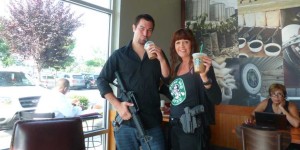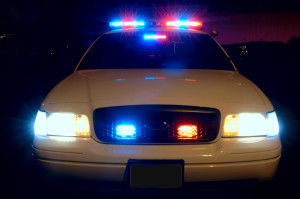Texas Open Carry Law: Will It Affect Your Business?
Jul
03
2015

What, if anything, can you do as a security officer once the Texas open carry law goes into effect? As you may or may not know, the state of Texas recently passed legislation that allows open carrying of firearms in public areas which takes effect beginning January 1, 2016. 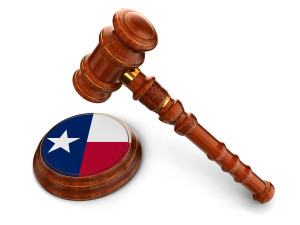
This is in addition to the state of Texas already allowing many to carry concealed handguns legally after a short course and license. That being said, it’s safe to say there is definitely no shortage of firearms legally being carried by citizens at any given time throughout the state of Texas.
Soon, you will see armed citizens with exposed firearms walking down the street in mass numbers or maybe even sitting next to you at local restaurants.
How will Texas open carry law affect security officers?
From a gun rights and Constitutional Second Amendment standpoint, these changes in laws surely are a good thing; however, many security agencies, police departments, and businesses grow concerned as to how all this will play out come January.
While businesses and security agencies do not want to interfere in a person’s right to bear arms, there is a concern when armed citizens arrive on a property and “outgun” the security staff, especially when the security guards are unarmed.
Something to Ponder: Criminal minded people will be among the law abiding citizens carrying firearms… how will security be able to differentiate between the two?
A citizen that is demonstrating “open carry” does not automatically mean this person is safe, has been drug tested, mentally evaluated, is not drunk, under medication, etc. While allowing an “unknown person” to enter your property armed to later find out that he or she has criminal intentions, places any security staff at a major disadvantage and often, too far behind the reactionary gap before you even notice something has gone wrong.
Texas open carry law and your property
It might be too late, as you now have an active shooter in your building when you thought he was just a nice citizen exercising his right to open carry.
Question: What can security officers do if Clients do not want firearms on their property?
TCTA’s Answer: You can have anyone removed from “Private Property” at any time, for any reason under TPC 30.05 – Criminal Trespassing (Class B Misdemeanor) – regardless if they are armed or not; it has nothing to do with Constitutional rights at this point.
You are an “Agent of the Owner” (legal term), by nature of your agreement or contract with the owner, and possess the right to have that person leav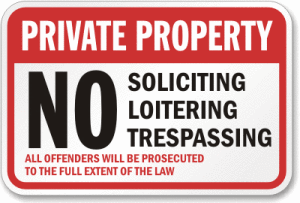 e on the owner’s behalf (note: Owner can also be a corporation or business).
e on the owner’s behalf (note: Owner can also be a corporation or business).
This is in addition or in the absence of a TPC 30.06 sign (notice) or a red 51% sign at some locations. Straight Trespass as per TPC 30.05 keeps everyone and anyone away for any reason. They have now added a TPC 30.07 section for open carry requiring businesses to now display both and in English and Spanish.
Special note: a verbal warning is sufficient under this code to warn the offender prior to an arrest.
Some will argue that your Private Property is “Open to the Public” and therefore they can be on the premises. This is FALSE. You need to inform all parties that there is a big difference between Public Property and “Open to the Public.”
Example: Walmart is open to the public for anyone to come and shop but it is owned by a private corporation, not the city, county, or federal government. Not only Walmart (the store), but their entire parking lot is also considered private property, so trespassing would still apply if you or your client want to go down that road.
For more information on Trespassing, visit our Contact page.
For direct information put out by DPS-RSD from their site, here is the link to the Open Carry post they provided: DPS-Open Carry
Posted in Current Events, Laws & Regulations, Training Tagged with: Open Carry Demonstration, Security guards and open carry law, security training, Texas Open carry, Texas open carry law
Security Officers Impersonating Police Officers
Jul
01
2015

Quite frequently, there seems to be some report of a security guard being accused or even arrested for impersonating a police officer. This is a very hot topic and sore spot with all law enforcement officers and some guard companies.
Law makers are becoming involved and looking at introducing bills to address this, as they feel the private security industry is not properly policing themselves or their organizations, to include the guard companies are the ones allowing and providing the equipment to their guards.
There is nothing wrong with guards looking professional in uniforms and vehicles, but clearly there are some security companies that seem to have intentionally designed their uniforms, patches, badges, and equip their vehicles so as to purposely mislead the general public or fulfill some fantasy of “playing cop,” which is an issue. You can be a professional security officer and provide a great service to clients without crossing lines.
Private Security Cars Mimicking Cop Cars
Blue & Red Lights: Who is pulling you over?
As the security industry continues to boom, guard companies are able to afford new high-tech vehicles which closely resemble law enforcement vehicles.
Although there is nothing wrong with purchasing ex-cop cars (or similar), the problem is that many times these vehicles are equipped by the guard companies and/or guards with emergency equipment such as: Red and Blue flashing lights, sirens, air horns, cages, push-bars, and stealth graphics – all done to fool or confuse the general public and give the illusion the security officers have more power than the average guard because they have red or blue lights… This is Incorrect!
When you couple the equipment, uniforms and vehicles with the fact that many guards are under-trained and not vetted well at most companies, often lines are crossed into committing the crime of “Impersonation of a Public Servant,” which is a Felony in the state of Texas.
Some companies may not know their guards are crossing the line, but then why provide vehicles and certain equipment to them?
Since posting this blog a few years ago, we’ve received a lot of positive responses from many law enforcement agencies; however, we also received negative responses from a couple of security guard companies (of course, from the ones with red or blue lights “playing cop”), and thought our post was incorrect or pointed a negative spotlight on them.
Sadly, one such response we received was a two-page rant from an “Instructor” at a different training academy in Austin who also provides a security guard and patrol service; his company uses blue lights and conducts traffic stops.
We have provided his argument points in this blog as it is the same ones augured by many that do this, and operate under a misunderstanding or misuse of the law, which they either create or avoid to acknowledge all aspects of while conducting their “traffic stops” as a security guard.
Some of these guards, companies, or rogue Instructors have actually taken their time to research and pick and choose a traffic code here or penal code there – parts of one section or another to construct or justify some type of permission or authority they are seeking to allow them to do this.
While they find one section or two that does not prohibit the use of the lights on private property specifically, they completely ignore the entire Penal Code section(s) which points out possible criminal violations that they could be committing. Some fail to realize they cannot pick and choose which code they’re willing to follow and which code they’re willing to ignore; the law doesn’t work that way.
Proper training from experienced and knowledgeable Instructors will keep you and your company out of trouble.
Security patrol vehicles that look like police cars
Question to Guard Companies: Why do you want to give the general public the impression you are law enforcement or something other than security?
It should be very clear who you are and what your authority is or isn’t to the general public at all times, without having to closely study your uniform, patches or vehicle from six inches away.
Stated position of DPS-RSD as found on their website: DPS-RSD (the regulating authority for private security) lists this topic (flashing Red/Blue lights) on their private security site as a FAQ or issue and their response is to cite a section of the Texas Vehicle Code as it pertains to prohibited equipment and or use, which is true on public roads and highways. Obviously, if DPS-RSD placed this on their site, they wish to discourage the use of the equipment right?
Argument from the security companies: The security companies and their guards acknowledge what DPS-RSD has posted on their site, however, they all point out that it is a “Texas Vehicle Code” violation (aka Transportation code), and as such, the vehicle code (99%) does not apply to anyone on private property – which is true.
Therefore, they ignore what DPS-RSD puts out stating “as long as we stay on private property when our emergency equipment is activated on our patrol cars the law can’t touch us.”
Special point: Some of these guards, companies, and rogue Instructors have done extensive research and can even provide several transportation or similar codes which talks about red lights, blue lights, whether the red lights are facing forward, facing backwards, whether the vehicle is moving or not moving, etc… all in an effort to war game the codes and laws to benefit them. 
There is no dispute, you can have a fully functional red & blue light bar and emergency equipment activated on private property (although highly discouraged), and not be in violation of the transportation code, but it is not the point of this article which talks about “impersonation” and traffic stops.
Shared point by many Law Enforcement Officers:
Law enforcement has a major legitimate point which is the public should not be confused as to who is pulling them over with red/blue lights at any time (private property or public roadway). Secondly, private security guards are not trained enough nor can handle pulling over a driver who turns out to be a violent criminal offender.
Many Law enforcement officers are killed yearly conducting traffic stops; keep in mind, they are also highly trained with a lot of technology at their fingertips. Most security guards do not have the ability to run license plates in real-time, run driver’s licenses, (so they have no idea what they’re up against), and they’re not actively monitoring any type of ongoing crime issues in the area, to include they do not attend a 6 to 9 month academy which goes over traffic stops, vehicle approaches, etc.
In the eyes of actual law enforcement, security guards (a.k.a. private citizens ), have no business conducting traffic stops, pulling vehicles over, detaining, delaying, or interfering in anyone’s freedom of movement unless they’re making a “citizen’s arrest,” which is generally not the case.
The last thing anyone wants is to have the public start to doubt, hesitate, or not trust law enforcement because of a prior bad experience with some security guard and his red/blue lights conducting a traffic stop with citizens assuming that security guard was a police officer while being stopped.
Points from a few guards, companies, and rogue security Instructors:
The two-page rant we received from a security Instructor that works for our competition (as mentioned prior), provided the following points; we are sharing his argument as a learning tool, as they are shared by many like-minded individuals whom harm the security industry more than help it, by setting brand new officers up for failure. 
In the letter, the rogue Instructor felt security officers could conduct traffic stops because they were on “private property; on a controlled access area; they had the owner’s permission; they were enforcing trespassing.” The Instructor also felt that he and the security staff were exempt from criminal charges because they were on “private property” and also indicated impersonation “had to be by threat, to include use of a badge, citations, ID, etc.”
He then continued on and addressed construction crews on the highway using blue lights; he felt that meant guards could also utilize blue lights and conduct traffic stops without penalty. He quoted transportation codes and sections about lighting, but avoided stated sections contained in the Texas Penal Code.
He also said his company is offering a “private police service” (again his words), all of which is ridiculous and was disappointing that it came from a security Instructor at a well-known security company in Austin and Houston.
Just like there is a big difference in security companies, there is a big difference in Security Instructors.
#1: No guard company can run a “private police service,” even if you have a few “active cops” working for your company, you must be recognized as a police department by the state such as a University Police Department – which will NEVER happen to a guard company.
Additionally, an off-duty police officer driving a security vehicle working in the capacity of a security officer does not make that security vehicle a “Police Vehicle” or that you are providing “Police Service.”
#2: His point of being exempt from any crimes because he is on private property, in a gated community or in a controlled access area or that the client or company provided permission to conduct traffic stops, simply does not hold water either.
Crimes are committed on private property every day and in gated communities; yes, the police can respond on calls and make arrests on private property and do so all the time. Private Property does not render you exempt from criminal charges unless you have diplomatic immunity. Additionally, no client or company can authorize you to break a law at any time.
#3: His point that he sees construction crews on the highway with yellow and blue lights flashing – he attempted to use as an excuse to authorize him and his guard company to use them and conduct traffic stops.
Impersonation of a Peace officer
One, separate the discussion of the lights themselves with conducting traffic stops; something he had a tough time comprehending. To restate, guard companies can have these lights on their vehicles and activate them on private property with no issues, but it is the traffic stop that we’re focusing on here.
As far as construction crews with yellow and blue lights, that is a TX-DOT contract requirement; they fall under TX-DOT (the state) when they operate on the freeway /highway. Not only are they authorized to do this but the construction crews are not conducting traffic stops and pulling citizens over – big difference and not a true “apples to apples comparison” that the Instructor attempted and failed.
#4: His comment that he “enforces Trespassing and conducts traffic stops” – Okay, so without going into a trespassing class here… If you stop (conduct a traffic stop) a suspected trespasser inside your property and the person turns out not to be committing a crime and you are not making a citizen’s arrest, then how do you get around the fact that you just unlawfully detained them with that stop?
If you know the law, you will also know that under TPC 20.02, handcuffs are not required to satisfy the definition of restrain (which also references TPC 20.01); so you may just walk yourself right into a charge of “Unlawful Restraint” (aka unlawful detainment or false arrest).
OCC 14.01 says you can only make an arrest if the crime is committed in front of your presence; so if no crime was committed and the person you just stopped is not trespassing, are you not out of bounds here? Yes, you are!
#5: His comment that Impersonation of a Public Servant “must include police ID, ticket booklet, or some type of threat” is wrong as well. Here is what the law says and it is cut and dry.
Texas State Law Penal Code Sec. 37.11. IMPERSONATING PUBLIC SERVANT:
(a) A person commits an offense if he:
(1) Impersonates a public servant with intent to induce another to submit to his pretended official authority or to rely on his pretended official acts; or
(2) Knowingly purports to exercise ANY function of a public servant or of a public office, including that of a judge and court, and the position or office through which he purports to exercise a function of a public servant or public office has no lawful existence under the constitution or laws of this state or of the United States.
(b) An offense under this section is a felony of the third degree.
TCTA’s breakdown: With TPC 37.11, that code does not require you to say “I’m a peace officer” to be charged with this crime; it also does not require you to be in a police uniform, have a police badge, or have a citation book or have “Police” on your car to be charged with this, although those items would provide icing on the cake – they not required.
This law is broad and leaves lots of room to find you in violation of it. It is ANY function normally done by a public servant with the intent to induce another to submit to your pretended authority of a peace officer.
A traffic stop is a prime example of this, so be very careful if this is you; even on private property, it won’t matter. Blue & red lights only adds fuel to the allegation by a motorist or police officer after a complaint is received.
Intent: can be shown when you or your company bought and installed those red & blue lights coupled with the fact you turned them on (activated them). You’re using the colors you know emergency vehicles use in this state when other colors (such as yellow or white) are available.
Induce: you want them (citizens) to pull over (or yield) to you and your vehicle which you know the average citizen after seeing those red or blue lights flashing will pull over as they believe you are some type of emergency vehicle.
Pretended authority: Key point here is how the driver (complainant) felt and what they believed you were at the time of you pulling them over (not after you ID yourself, but when you were pulling them over from behind, coupled with the fact you used “emergency equipment” to do so).
You have to ask yourself what type of agency drives around with red/blue lights, a siren and makes traffic stops? Only law enforcement does, so it is safe to say out of 100 people, all 100 will agree they thought you were the cops pulling them over, and that’s all it takes to file a report on you – again, using those lights adds fuel to their claim (private property or public road way).
Since it is a felony, you can 100% count on the fact that law enforcement will investigate and maybe even conduct undercover stings on your company – it has been done before.
Keep in mind, the traffic stop is your action to get them to submit (stop/yield & pull over); you’re also delaying/detaining them with your traffic stop, which is another issue.
Closing points: Let’s be clear here: YES, you can drive around on your client’s property (private property) with flashing blue and red lights (although highly discouraged), as a “high visibility patrol technique.” And you can have consensual conversations with people and ask them questions and advise them of your property’s rules, etc.
But we are talking about actually pulling over vehicles, stopping citizens, making traffic stops, running radar, and chasing people down on your property, blocking people in and delaying them, detaining them, with the use of your patrol car and that equipment as a tool.
For the most part, looking at the current codes for private security, they are either lacking, vague, nonexistent, or outdated, which some companies take advantage of and push the limits. Quite frankly, why are the guards and companies so determined to have red and blue lights on their vehicles when yellow and white is just fine. We are “security;” we are not law enforcement and there should be a clear division between the two from any private citizen’s standpoint.
Even as a trained professional in the industry, I have a difficult time identifying security or police with some of these guard companies (uniforms and vehicles) it’s getting a little out of control to say the least with guards wearing SWAT uniforms and jumping out of unmarked police style cars with patches and badges you can barely see or are misleading – some do their best to hide the word “security,” which makes it more confusing.
When you couple an “unmarked” police style car with red and blue lights which is how a lot of the companies roll, you really fool the general public and this should be unacceptable. Remember it is not the color of the lights you have on your security car that gains you the respect or the compliance you seek, it is the officers you have working for you and their training.
Regardless if you mark your vehicles or not and regardless what color of flashing lights or equipment you place on your patrol cars, security officers cannot run a “private police service” and cannot legally make traffic stops (period).
Contact TCTA for more information about guards impersonating police officers.
Posted in Laws & Regulations Tagged with: can guards make traffic stops?, Police impersonation, security flashing lights, Security making traffic stops, security training
Criminals working security guard jobs
Jun
01
2015

Have you ever wondered just how thorough of a background check is conducted of security guards? Did you ever think just maybe the guard on your property may have a criminal background? Is it possible the state of Texas is allowing and licensing convicted criminals to work in the security industry? Are criminals working security guard jobs?
Short answer: Yes… and possibly working on your property right now!
 DPS-RSD will allow and license convicted criminals and non-Us citizens to work security. It is true. If you are a convicted felon and your crime is over ten years, the state of Texas will license you with no problem. If you have a misdemeanor conviction which is over five years, the state of Texas will license you to work security and safeguard people and properties – jaw dropping huh…
DPS-RSD will allow and license convicted criminals and non-Us citizens to work security. It is true. If you are a convicted felon and your crime is over ten years, the state of Texas will license you with no problem. If you have a misdemeanor conviction which is over five years, the state of Texas will license you to work security and safeguard people and properties – jaw dropping huh…
Criminals working in security
Security companies that claim they do background checks mostly rely on the state’s finding; they generally don’t go any further. Statistics show that repeat offenders in the U.S., commit crimes again – hence, the terminology “repeat offenders.”
Why these low standards exist in the security industry of all places is unknown; many would agree, it should not be taking place in an industry where the guards are providing services at all types of locations to include: Daycares, retirement homes, apartment complexes, banks, jewelry stores – and mostly unsupervised themselves… kind of risky right/
When a client is contracting with a security agency they assume and are told that background checks are done, and that every guard showing up on their property is “clean as a whistle;” sadly, that this is not true and a large number of guards working in the industry have criminal records.
If we want the image of security to be taken seriously and pay to increase, this has to change and the industry’s image must be cleaned up. Guard companies are aware of this, as they are employing these individuals often for low wages, therefore they want to remain silent on the issue.
Security companies hire felons
Question for Guard Companies:
What is your plan when an incident occurs which involves your employee who is a convicted felon? What will be your statement to the media or your client? Think about it for a minute: either way you answer the question regarding your knowledge of a convicted felon makes your company look bad.
Hypothetical Answer #1: “We thought he was fine because DPS does the background checks. We had no idea.” This is not a good answer, as a company is supposed to conduct their own background checks also – at least that is what most guard companies advertise on their websites and literature, to include DPS requires it. This answer makes you look negligent, untrustworthy, and as if you provide false advertising.
Hypothetical Answer #2: “Yes, we knew he was a convicted felon but DPS cleared him.” This answer is not good either, as you are admitting to placing a convicted felon on a client’s property without notifying them; your clients would have grounds for a lawsuit should an incident occur. This answer, like the prior one, makes you look negligent, incompetent, and places the clients in jeopardy, to include your company’s reputation.
While recommendations are being sent to the Board, we suggest educating the general public about the standards of this industry and how your company is different. Offer proof of drug tests and criminal backgrounds of your staff to your clients; this will drive the other guard companies hiring felons out of business. It does a client no good to show them what nice uniforms or patrol vehicles you have when a convicted felons are representing you and your clients.
Convicted felons work as security officers
Did you know?
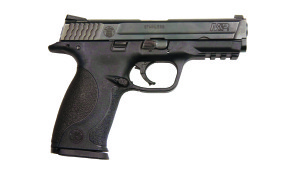 Ex-felons cannot possess a firearm and cannot work as a Commissioned officer or a Level-4 Bodyguard (as a Commissioned license must be possessed with the Level-4), so most remain as a non-commissioned Level-2 (unarmed guard) for that exact reason.
Ex-felons cannot possess a firearm and cannot work as a Commissioned officer or a Level-4 Bodyguard (as a Commissioned license must be possessed with the Level-4), so most remain as a non-commissioned Level-2 (unarmed guard) for that exact reason.
Ex-felons cannot take the Level-3 class for educational purposes, as they cannot not possess the firearm required to complete the course. Additionally (by state law), ex-felons cannot wear body armor; this clearly exemplifies even further why convicted criminals shouldn’t pursue this particular industry.
Security clients across the state who “assume” all their guards have a clean background would be shocked and horrified to learn they might have an ex-felon or guard with a criminal background on their property working right now. This should be addressed immediately!
Why security associations such as ASSIST, DPS, Homeland Security, the Governor’s office and the Board, have not brought this issue to the forefront remains a mystery. The security industry cries for the public’s trust and to be seen and paid as professionals, but how professional can you be with known criminals working for your company?
Hundreds of people have asked “How do we raise the pay, trust, and standards in the guard industry?” The answer (which every security company already knows), is ignored or not welcomed, is to first clean up their ranks and terminate convicted criminals, then stop hiring new ones.
Secondly, embrace training and stop running from it or just doing the minimum (this goes for the companies and the guards). Implement 100% drug tests with 100% MMPI’s across the board at all levels.
And lastly, if more security companies learned to work together, they could collectively address some issues with DPS-RSD as a large group; associations are awesome but if they have no bark or bite with the state, they are useless. When ASSIST contacts the state or DPS, they should send as much fear and have as much respect as the ACLU or the NAACP when they come knocking, but clearly they do not, which is another issue to address at a later date.
For more information about ex-felons working in the security sector, contact TCTA.
Posted in Current Events, DPS-RSD Policies Tagged with: criminals working security, criminals working security jobs, DPS security licensing, ex-felons hired as security, Guard companies employing convicted felons, security training, Texas security licensing standards
Can security guards legally carry firearms off duty?
Feb
19
2015

Security guards often travel to and from work in gear – some armed, while others unarmed. Is it legal for security officers to carry guns into locations they are not assigned to? If not on post, can security guards legally carry firearms off duty?
This is a very hot topic with security and law enforcement right now as the industry expands and guards are being seen many places armed. Some question if this is a violation or not… well, here’s the answer to this once and for all.
Texas Certified Training Academy has received several phone calls monthly pertaining to the topic at hand along with a few emails from security companies and law enforcement all inquiring about what we are teaching, what the regulations state, and what our understanding of the” Letter and the Spirit” of this law is.
Many have checked with DPS and were referred to the Texas Penal Code section 46.02 & 46.03 or were given different answers depending on who answered the phone at DPS.
Security guards carrying firearms off duty – Do guard companies allow this?
The issue: Security officers are seen eating at restaurants, shopping at local grocery stores, and standing in line for personal reasons such as paying bills, but all in uniform and fully armed. None of the places mentioned were contracted locations their company was providing services for.
Because the state has licensed them, their firearm is exposed, and they are in uniform, the guards should be “good to go” anywhere they please.
Some guards say “I don’t want to leave an unsecured firearm in my vehicle while I go inside to shop;” others will state, “they changed the law and now we can do it” – but they don’t know the penal code number and cannot recite word for word what it even says.
Some know a piece of it and will tell you that in 2007 a Texas House Bill was passed which changed the wording of TPC 46.03 and they took out the word “Directly” and specifically gave security mention and permission; this is where the misunderstanding comes in and the problem begins.
This all starts from officers not being properly trained by other schools and not being properly informed by their companies.
Security training for armed and unarmed guards
We have to study the two laws that cover this area to understand what is right or wrong here:
Sec. 46.02. UNLAWFUL CARRYING WEAPONS.
(a) A person commits an offense if the person intentionally, knowingly, or recklessly carries on or about his or her person a handgun, illegal knife, or club if the person is not:
(1) on the person’s own premises or premises under the person’s control; or
(2) inside of or directly en route to a motor vehicle that is owned by the person or under the person’s control.
an offense under this section is a Class A misdemeanor.
Continued from 46.02: (c) An offense under this section is a felony of the third degree if the offense is committed on any premises licensed or issued a permit by this state for the sale of alcoholic beverages.
Sec. 46.03. PLACES WEAPONS PROHIBITED. 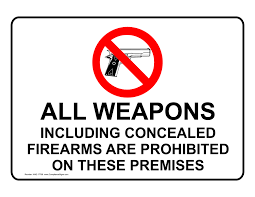
(a) A person commits an offense if the person intentionally, knowingly, or recklessly possesses or goes with a firearm, illegal knife, club, or prohibited weapon listed in Section 46.05(a):
(1) on the physical premises of a school or educational institution, any grounds or building on which an activity sponsored by a school or educational institution is being conducted, or a passenger transportation vehicle of a school or educational institution, whether the school or educational institution is public or private, unless pursuant to written regulations or written authorization of the institution; (2) Polling place (3) Any government court or offices utilized by the court, unless pursuant to written regulations or written authorization of the court; (4) On the premises of a racetrack; (5) In or into a secured area of an airport;
(d) It is a defense to prosecution under Subsection (a)(5) that the actor possessed a firearm or club while traveling to or from the actor’s place of assignment or in the actual discharge of duties as:
(1) A member of the armed forces or National Guard;
(2) A guard employed by a penal institution; or
(3) A security officer commissioned by the Texas Private Security Board if:
(A) The actor is wearing a distinctive uniform; and
(B) The firearm or club is in plain view; or
(h) It is a defense to prosecution under Subsection (a)(4) that the actor possessed a firearm or club while traveling to or from the actor’s place of assignment or in the actual discharge of duties as a security officer commissioned by the Texas Board of Private Investigators and Private Security Agencies, if:
(1) The actor is wearing a distinctive uniform; and
(2) The firearm or club is in plain view.
(i) It is an exception to the application of Subsection (a)(6) that the actor possessed a firearm or club:
(1) While in a vehicle being driven on a public road; or
(2) At the actor’s residence or place of employment.
Is it against the law for off-duty security to carry guns?
Although everyone points to TPC 46.03, this talks about prohibited areas such as churches, schools, polling places, courts, government offices, racetracks, etc. – places you are not allowed to be or around with your firearm.
This same section gives permission for security officers to be in those stated locations only if they fit the stated criteria. This only allows exemptions to the prohibited areas if you are assigned there or traveling to and from the actor’s place of assignment (work site).
This permits you to travel through a school zone armed if you’re on your way to work, or you may legally work at a courthouse or other location armed if you fit the criteria. This is not a green pass to travel all over your town and go shopping , wash your car, and sit down and eat meals at restaurants armed; you are NO LONGER TRAVELING and the protection from the exemption no longer applies.
So the two things in that section that guards incorrectly use is (1) Place of assignment, and (2) Traveling.
If your security company does not have a contract at Walmart, HEB, or at your local restaurant, then those locations are NOT your place of assignment. If you are not in “travel mode” and you stop and go shopping, you are not protected by this law (period!)
Section 42.02 states you commit an offense if you are carrying a handgun or club (baton) on a property that is not yours or that you are not in control of – or that you are not in a vehicle or in route to or from a vehicle. This 100% shuts the door completely on the guards doing this without any spirit or letter of the law here.
Another big issue no one has brought up is the insurance issue. As an armed security officer, your company carries liability insurance for your actions and that firearm; however, your company’s insurance policy only covers your actions on your client’s property…
So basically, security officers are uninsured when they do this, to include breaking the law.
 The laws are very clear and we recommend if you have to go inside a store or restaurant either take your gun belt off or get a CHL and conceal your weapon… or don’t make that stop. Some have argued that they have entered private property and only the place of business can ask them to leave – WRONG!
The laws are very clear and we recommend if you have to go inside a store or restaurant either take your gun belt off or get a CHL and conceal your weapon… or don’t make that stop. Some have argued that they have entered private property and only the place of business can ask them to leave – WRONG!
The place of business protects you from Trespassing (in our example), as you are welcome to be there but the place of business cannot give you permission to break a state law regarding unlawful carrying of a firearm.
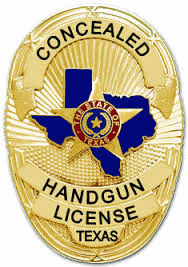 Lastly, a CHL cannot be combined with any security regulated work, so if using this avenue to carry then you would have to be out of uniform. With Texas’ open carry law taking place January 1, 2015, this also will not apply to licensed and uniform security officers.
Lastly, a CHL cannot be combined with any security regulated work, so if using this avenue to carry then you would have to be out of uniform. With Texas’ open carry law taking place January 1, 2015, this also will not apply to licensed and uniform security officers.
For more info on this topic, contact Texas Certified Training Academy.
Posted in Laws & Regulations, Training Tagged with: Guards carrying off duty, Security guards carrying firearms off duty, Security officers carrying firearms off post?, security training, Texas guards carrying off duty
